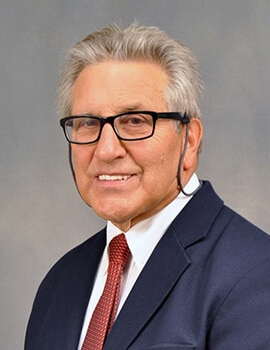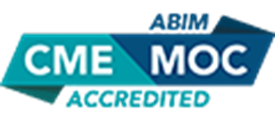Course Overview
Brought to you by the Founder and creators of the Masters of Pediatric Dermatology (MOPD) Symposium
From the experts that have brought you the Masters of Pediatric Dermatology (MOPD) Symposium for over 30 years, this comprehensive certification course has been designed specifically to develop your foundational knowledge of some of the most common skin conditions affecting pediatric patients.
The Foundations of Pediatric Dermatology Certificate Course is chaired by MOPD founder Lawrence A. Schachner, MD, who presents alongside a team of other well-known pediatric dermatology experts. The course is available to any healthcare provider who wants to learn more about the fundamentals of pediatric dermatology and best practices for treating and managing common dermatologic conditions, including the pathophysiology and current clinical data.
The self-paced, six-module CME/CE program provides participants with in-depth training delivered through various learning methods, including expert-led lectures and interactive case presentations, and the opportunity to evaluate and test learning outcomes. Each module also includes a downloadable knowledge-check sheet, and learners will also be provided with a “When to Refer Clinician Guide”.
Throughout the course, participants will gain knowledge of the most common pediatric dermatology conditions, including acne and pigmentary issues, atopic dermatitis, hair disorders and scalp conditions, psoriasis, and more.
- Acne and Pigmentary Disorders
- Atopic Dermatitis
- Cutaneous Skin Conditions
- Hair Disorders and Dry Scalp
- Infections
- Skin of Color
- Molluscum
- Pediatric Psoriasis
- Diaper Dermatitis
- When To Refer
Within each module, Dr. Schachner and other Nationally Recognized Pediatric Dermatology Experts will discuss the pathophysiology of the conditions, what current guidelines advise, what clinical data is available, the most effective approach in clinical practice to these conditions, and when to refer.
The course explores six specific focus areas, each with its own learning objectives, which learners can later assess through subsequent evaluation methods.
Each module includes a downloadable knowledge-check sheet that learners can use to test their understanding of each focus area.
Each learner will have access to a private 30-minute "Ask the Professor" session where they can discuss their cases with the experts. There will be a total of four “Ask the Professor” sessions spread out between Q3 and Q4 (two in each quarter). Note that only learners who have signed up for the course may attend.
A "When to Refer Clinician Guide" is provided as part of the course’s resources which learners can use to guide them in their referral process wherever necessary.
Upon completion of the Foundations of Pediatric Dermatology Course, all learners will receive a certificate to demonstrate their successful completion.
Course Objectives
This CME/CE series is intended and accredited for Pediatricians, Physician Assistants, Nurse Practitioners, Registered Nurses, Residents and other healthcare professionals with an interest in Pediatric and Adolescent Dermatology. Upon completion of the Foundations Modules, the learner will receive up to six (6) CME/CE credits and a Foundations Modules Course Certificate.
After completing this activity, the participant should be better able to:
- Understand the events and causes involved in the development of acne lesions
- Review and understand pigmentary disorders, their classifications, and evidence-based guidelines for management
- Evaluate the evidence for emerging therapies in relation to acne and major pigmentary disorders
After completing this activity, the participant should be better able to:
- Understand the events and causes involved in the development of acne lesions
- Review and understand pigmentary disorders, their classifications, and evidence-based guidelines for management
- Evaluate the evidence for emerging therapies in relation to acne and major pigmentary disorders
After completing this activity, the participant should be better able to:
- Understand the events and causes involved in the development of acne lesions
- Review and understand pigmentary disorders, their classifications, and evidence-based guidelines for management
- Evaluate the evidence for emerging therapies in relation to acne and major pigmentary disorders
After completing this activity, the participant should be better able to:
- Understand the events and causes involved in the development of acne lesions
- Review and understand pigmentary disorders, their classifications, and evidence-based guidelines for management
- Evaluate the evidence for emerging therapies in relation to acne and major pigmentary disorders
After completing this activity, the participant should be better able to:
- Understand the events and causes involved in the development of acne lesions
- Review and understand pigmentary disorders, their classifications, and evidence-based guidelines for management
- Evaluate the evidence for emerging therapies in relation to acne and major pigmentary disorders
After completing this activity, the participant should be better able to:
- Understand the events and causes involved in the development of acne lesions
- Review and understand pigmentary disorders, their classifications, and evidence-based guidelines for management
- Evaluate the evidence for emerging therapies in relation to acne and major pigmentary disorders
Module 1 is taught by Karan Lal, DO, MS and Nanette B. Silverberg, MD.
After completing this activity, the participant should be better able to:- Understand the events and causes involved in the development of acne lesions
- Review and understand pigmentary disorders, their classifications, and evidence-based guidelines for management
- Evaluate the evidence for emerging therapies in relation to acne and major pigmentary disorders
Module 2 is taught by Peter A. Lio, MD and Lawrence A. Schachner, MD.
After completing this activity, the participant should be better able to:
- Identify and describe the complex and multifactorial pathophysiology of atopic dermatitis
- Review and understand strategies for the management of atopic dermatitis and its associated comorbid conditions
- Develop treatment plans for patients with atopic dermatitis that reflect evidence-based guidelines and strategies to optimize short-term control and long-term management of the disease
- Define and describe the clinical presentations and features, natural history, and common complications of common skin conditions (i.e.: psoriasis, seborrheic dermatitis, pityriasis rosea, hives, drug reactions, etc.)
- Develop plans to improve adherence to evidence-based clinical guidelines in practice for common skin conditions
- Review current and emerging therapies that hold promise for the effective treatment of common skin conditions
Module 4 is taught by Elena Pope MD, M.Sc., FRCPC and Robert Sidbury, MD, MPH.
After completing this activity, the participant should be better able to:
- Examine and understand common skin conditions (i.e.: sun protection, diaper dermatitis, infantile hemangioma, etc.), their prevalence, and clinical presentations
- Review clinical guidelines for the management of common skin conditions
- Understand the clinical evidence and mechanisms of action of topical and/or systemic drugs used to treat common skin conditions
Module 5 is taught by Brittany G. Craiglow, MD and James R. Treat, MD.
After completing this activity, the participant should be better able to:
- Identify the etiology and pathophysiology of hair disorders and scalp conditions (i.e.: (alopecia arreata, hair loss, etc.)
- Examine and understand the typical presentations of hair disorders and scalp conditions
- Review the evidence and clinical guidelines for the management of hair disorders and scalp conditions
Module 6 is taught by Bernard A. Cohen, MD and Lisa A. Swanson, MD.
After completing this activity, the participant should be better able to:
- Understand the causes of common dermatological infections (i.e.: impetigo, tinea, scabies, head lice, warts, molluscum, etc.)
- Review and understand the typical presentations of common dermatological infections and clinical guidelines for management
- Evaluate and understand current and future treatment options for dermatological infections
Course Chair

Robert H. Eckel, MD
- Professor of Medicine, Emeritus
- Division of Endocrinology, Metabolism & Diabetes
- Division of Cardiology
- S/P Professor of Physiology & Biophysics
- S/P Charles A. Boettcher II Chair in Atherosclerosis
- University of Colorado Anschutz Medical Campus
- Aurora, Colorado
Course Faculty
FACULTY
Certificate Course Cost
Masters Of Pediatric Dermatology (MOPD)
For over 30 years, the Masters of Pediatric Dermatology has grown to reach thousands of clinicians with the goal of promoting and advancing the care of skin diseases in pediatric and adolescent patients. The annual event offers the opportunity to exchange new and valuable information between physicians and health professionals interested in cutting-edge pediatric dermatology in a live setting. Click here to learn more about MOPD.
Powered by LiVDerm
JOINT ACCREDITATION STATEMENT
In support of improving patient care, this activity has been planned and implemented by Partners for Advancing Clinical Education (PACE) and Tarsus Cardio Inc. dba Cardiometabolic Health Congress (CMHC). PACE is jointly accredited by the Accreditation Council for Continuing Medical Education (ACCME), the Accreditation Council for Pharmacy Education (ACPE), and the American Nurses Credentialing Center (ANCC), to provide continuing education for the healthcare team.
PHYSICIAN CONTINUING MEDICAL EDUCATION
Partners for Advancing Clinical Education designates this enduring material for a maximum of 50.75 AMA PRA Category 1 Credits™. Physicians should claim only the credit commensurate with the extent of their participation in the activity.
CONTINUING NURSING EDUCATION
The maximum number of hours awarded for this Continuing Nursing Education activity is 50.75 contact hours. Pharmacotherapy contact hours for Advanced Practice Registered Nurses will be designated on your certificate.
CONTINUING PHARMACY EDUCATION
Partners for Advancing Clinical Education designates this continuing education activity for 50.75 contact hour(s) (5.075 CEUs) of the Accreditation Council for Pharmacy Education.
For Pharmacists: Upon completing the post-test and the activity evaluation form, transcript information will be sent to the NABP CPE Monitor Service within 4 – 6 weeks.
CONTINUING DIETICIAN EDUCATION
This program offers 50.75 CPEUs for dieticians.
ABIM MOC CERTIFICATION
Successful completion of this CME activity, which includes participation in the evaluation component, enables the participant to earn up to 50.75 MOC points in the American Board of Internal Medicine’s (ABIM) maintenance of certification (MOC) program. It is the CME activity provider’s responsibility to submit participant completion information to ACCME for the purpose of granting ABIM MOC credit.
MERIT-BASED INCENTIVE PAYMENT PROGRAM (MIPS)
Completion of this accredited CME activity meets the expectations of an Accredited Safety or Quality Improvement Program (IA_PSPA_28) for the Merit-based Incentive Payment Program (MIPS).
DISCLOSURE OF CONFLICTS OF INTEREST
Partners for Advancing Clinical Education (PACE) requires instructors, planners, managers, and other individuals who are in a position to control the content of this activity to disclose all financial conflicts of interest (COI) they may have with ineligible companies. All relevant COI are thoroughly vetted and mitigated according to PACE policy. PACE is committed to providing learners with high-quality accredited CE activities and related materials that promote improvements or quality in healthcare and not a specific proprietary business interest of an ineligible company.
HARDWARE/SOFTWARE REQUIREMENTS
A computer with an internet connection.
Internet Browser: Internet Explorer 7.x or higher, Firefox 4.x or higher, Safari 2.x or higher, or any other W3C standards compliant browser.
Other additional software may be required such as PowerPoint or Adobe Acrobat Reader.
POLICY ON PRIVACY AND CONFIDENTIALITY
Please see final activity for the policy on privacy and confidentiality that relates to this internet activity.















